
You've Got This Hand Lettered Card. Encouragement Card.
Grammar explanation. We use I/you/we/they + have got or he/she/it + has got to talk about things that we have. In many situations, have and have got mean the same thing. Have got is a little less formal than have. We often use have got more in speaking and have more in writing. They have got a big garden. = They have a big garden.

Keep going... you’ve got this! Or rest and have a nap... that’s totally cool too, you’ve still
The former, I suppose. "You got this" is like nails on a chalkboard to my ears, and it's everywhere . Just saw an Edward Jones commercial on TV where they say "we got this" over and over and over.. My ears are bleeding 😭.
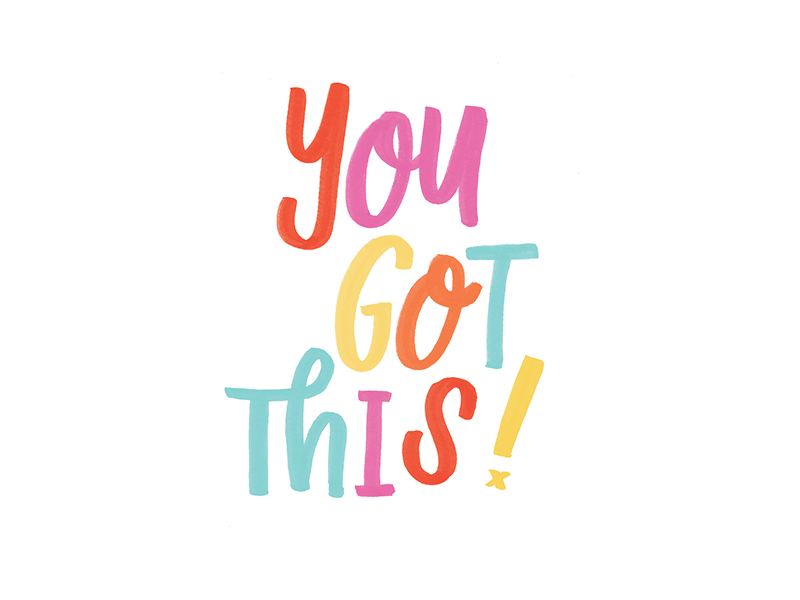
Hey, You got this.
You got this vs You've got this. A complete search of the internet has found these results: You got this is the most popular phrase on the web. More popular! You got this. 22,700,000 results on the web. Some examples from the web: You got this! The expression is widely used by coaches and educators who love to encourage their audience. Here's a.
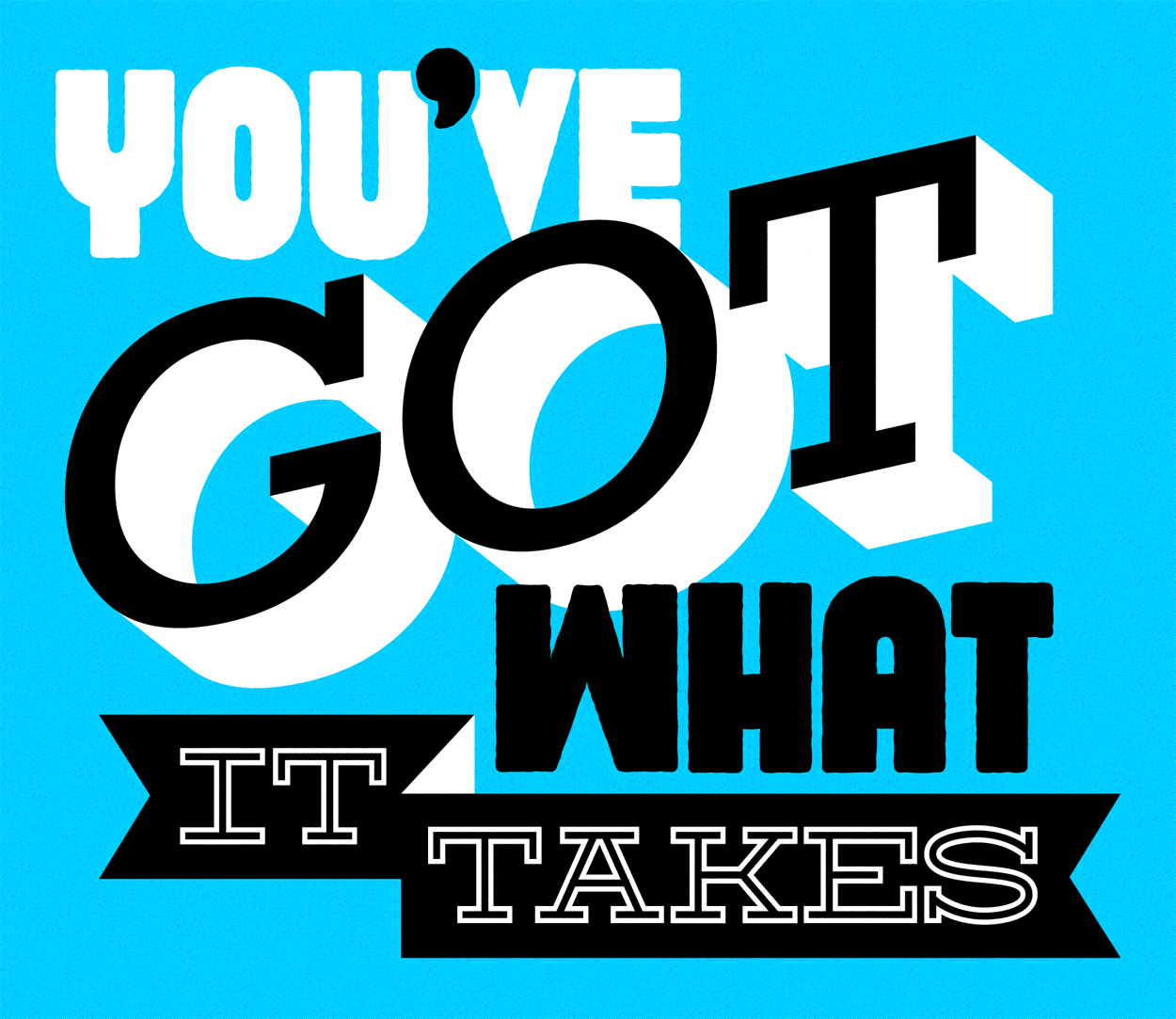
You've Got This GIFs Tenor
It depends, whether you want to say if somebody has (owns) a message right now or if somebody has got (received) a message. That's not correct. "You've got a message" can mean exactly the same thing as "You have a message." (Likewise, "He's got blue eyes" means "He has blue eyes," not "He has received blue eyes.")
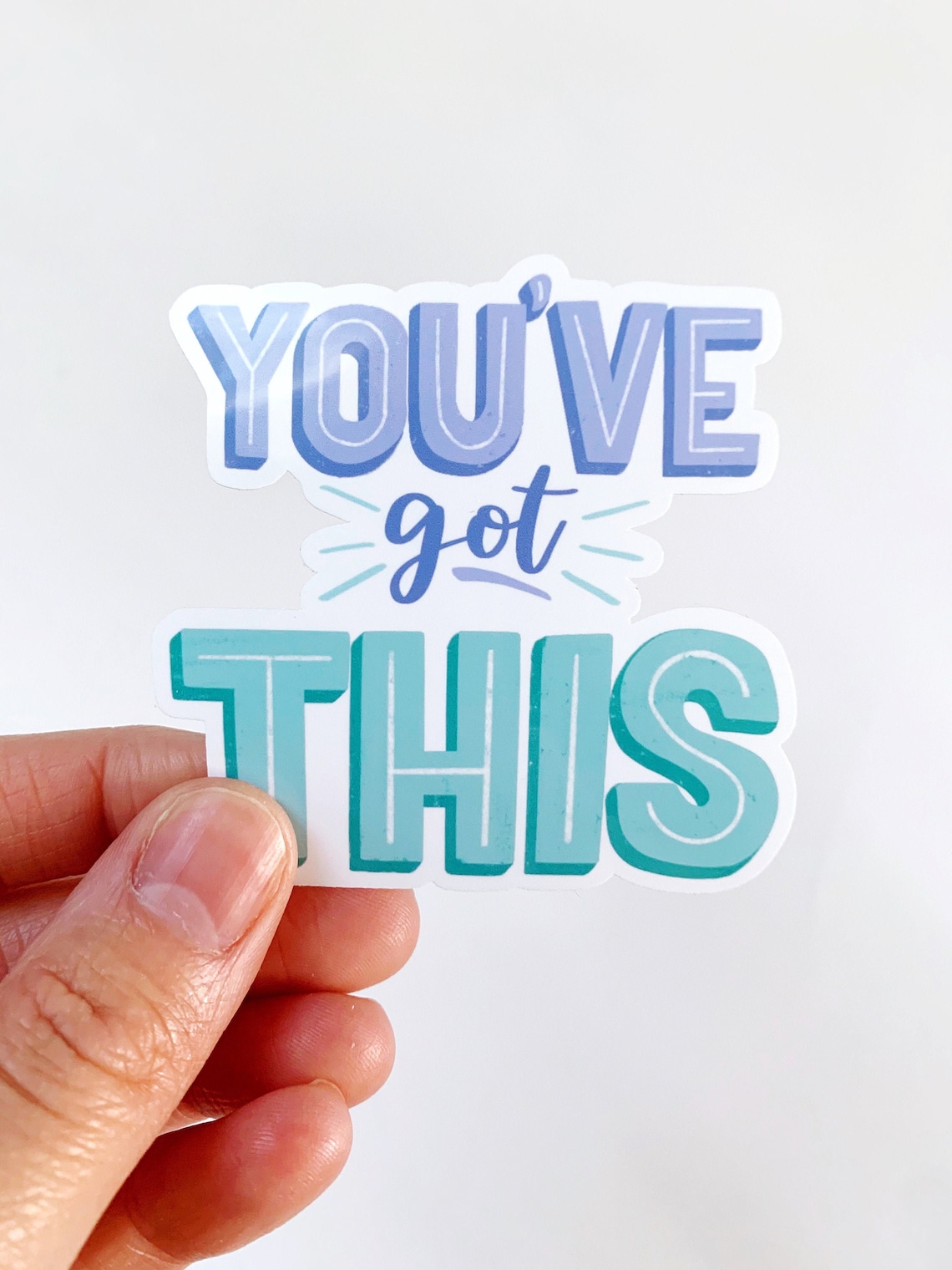
Youve Got This Vinyl Sticker Motivational Inspirational Etsy
Amrita has got (or Amrita's got) a beautiful blue silk sari. They have got (or They've got) a whole hour to wait. Have got to may be used to mean "must" or "have to": I have got (or I've got) to send a thank-you note to my aunt. You have got (or You've got) to be kidding! The use of got by itself (i.e. without have) with a.

You’ve Got This. International Women’s Day 2018 by Words For Parenting Medium
As an idiomatic expression, the phrases "I got," "I've got," and "I have" can be used interchangeably. However, if using the phrase "I got" in the past tense form, it cannot be replaced with either "I've got" or "I have.". Here is an example of this usage to reiterate the instance in which "I got" is a stand.

You've got this Motivational Mug TeePublic
The OP's sentence: You got to see my enemy's face when I was winning. Grammatical: Yes but the have got form here specifically would be incorrect for this specific meaning.. Specific idiomatic usage of to get to do something: * I got to go to the sports' event last night [because I had tickets]. * He didn't get to see the movie on TV because he arrived late.

You've Got This Motivational Wall Art Stickers Vinyl Letters Decals Quotes
Sure. You got it. You can also use "you got it" when you want to confirm that the person understood exactly what you had said or explained. The meaning is "yes, it's exactly what I mean". Or when you confirm that the person is right. - Was it the right answer? - You got it! (meaning: yes, you're right).

inspirational quotes you got this Got quotes inspirational quotesgram
"We got you" is more informal, but it means "we have you." It implies ownership of "you" in some way (i.e. saving someone by catching them as they fall). "We've got you" means "we have got you," implying that you're looking after someone or making sure they're okay. Don't worry; we got you!
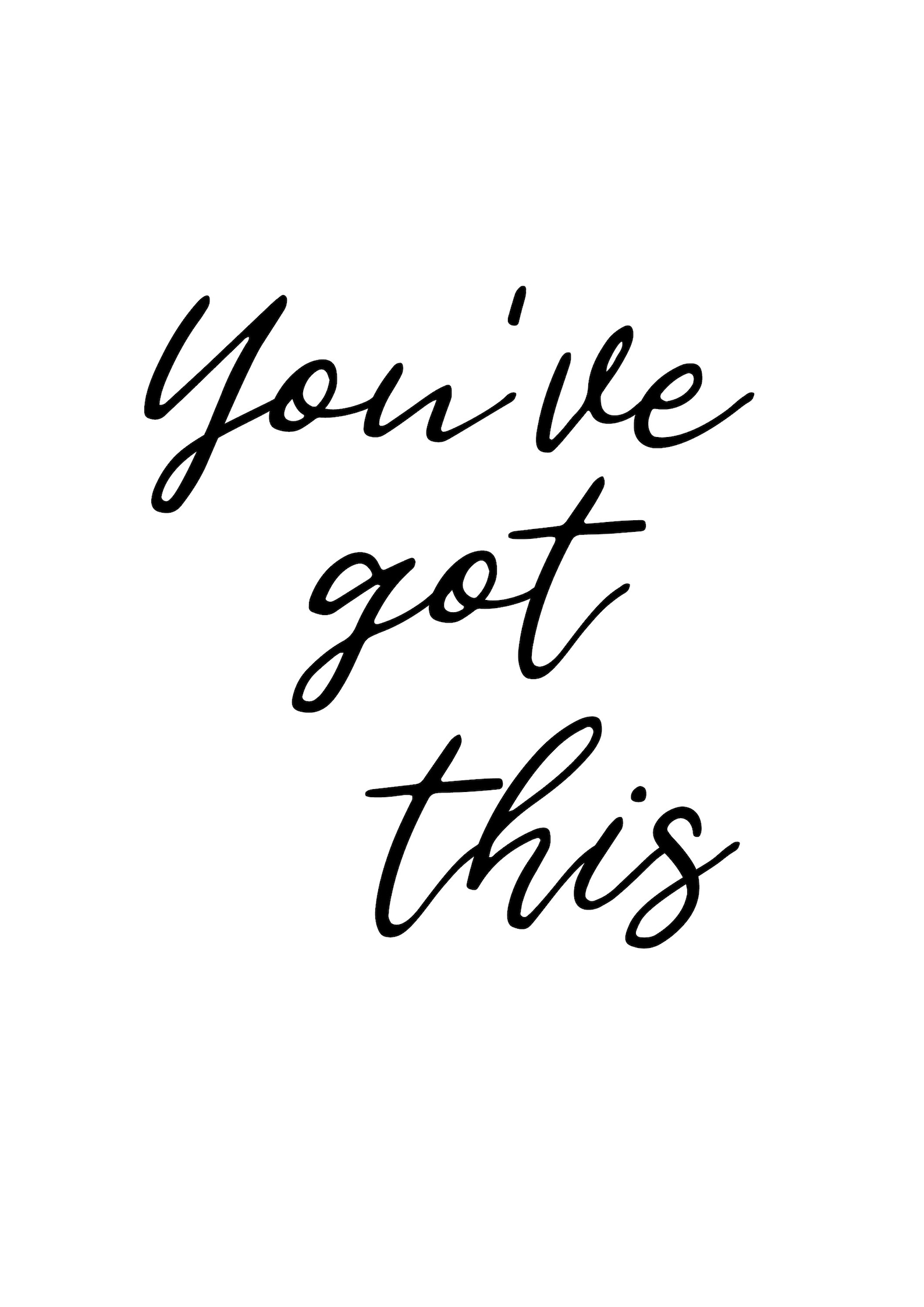
You've Got This Quote Motivational Print Black and White Etsy
HAVE GOT - Used in British and American English. In both British and American English, have got means have when it's followed by a noun phrase, and have to ( or must) when it's followed by to + a verb. Below are some examples of each. Some of them include contractions with have/has + got, which are common. HAVE GOT + NOUN = have (more.

'You've Got This!' Motivational Quote Print By I am Nat
Oct 12, 2018 at 9:56. 2. I mean you can replace "have got" with "have" or the other way around. "I've got to go" equals "I have to go", with this you can separate the meanings between present and present perfect tense more easily. And if the OP saw it, they would knew the word "get" isn't so suitable for the sentence.

You Got This You Got This Font, HD Png Download , Transparent Png Image PNGitem
Tutor 4 years ago. "You've" (short for "You have") - more casual and familiar, less important. For example "You've got a great smile." "You got" (have is missing). Completely incorrect grammar -at least in British English anyway. Highly casual to the point of slang. For example "You got my number.

You Got This Wallpapers Wallpaper Cave
1. In colloquial American English: I got you = I've got you. The video is very clear: I've got you. The have is not dropped. It means I'm holding you and therefore, you won't be squished as they run along because the little dog (or animal) is in danger of being trampled underfoot by others. If you are about to fall off a roof or cliff,for.
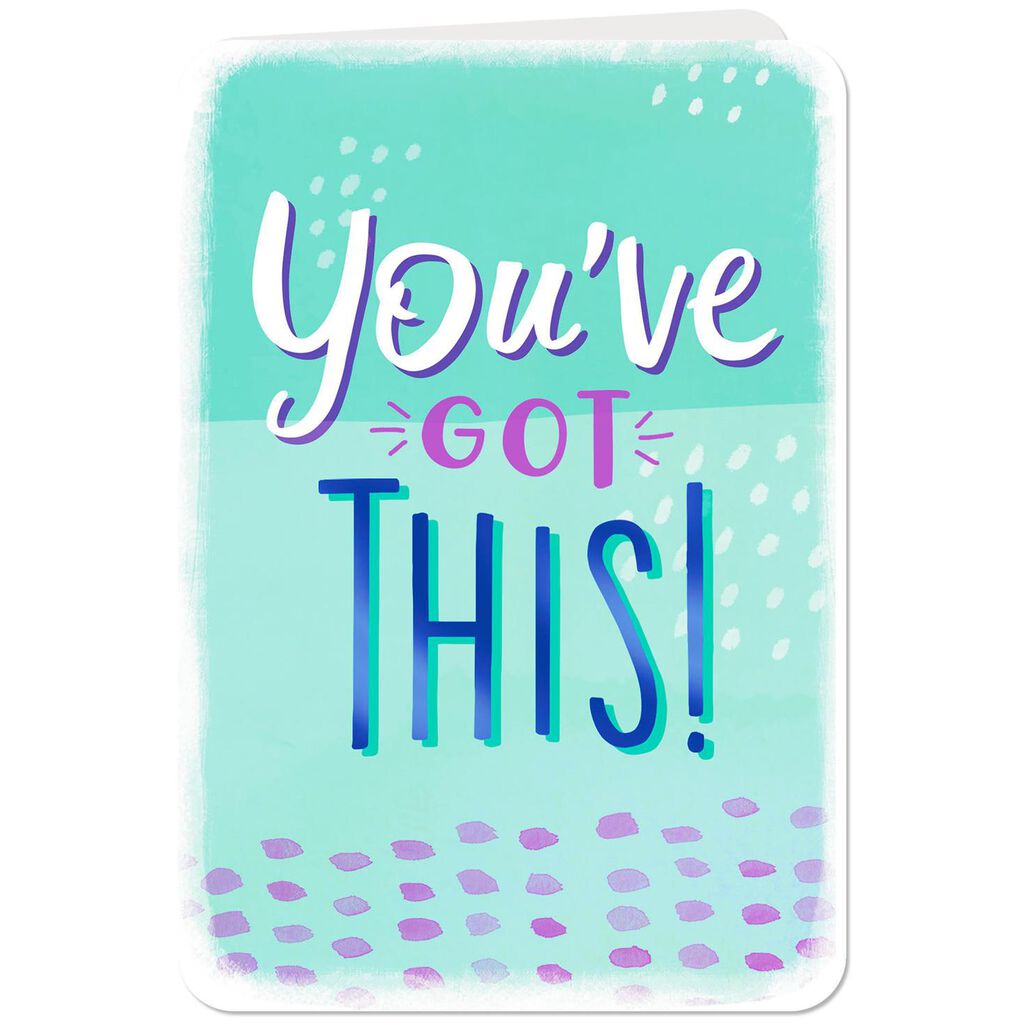
You've Got This Encouragement Card Greeting Cards Hallmark
It's "you've got", meaning "Fight with everything you have got". They mean the same thing but the first sentence is grammatically incorrect and sounds like lazy slang. R. rafaelgan Senior Member. U.S.A. Spanish Jun 18, 2007 #4 Well, actually "you have got" I think is incorrect, because it should be "you have gotten"..
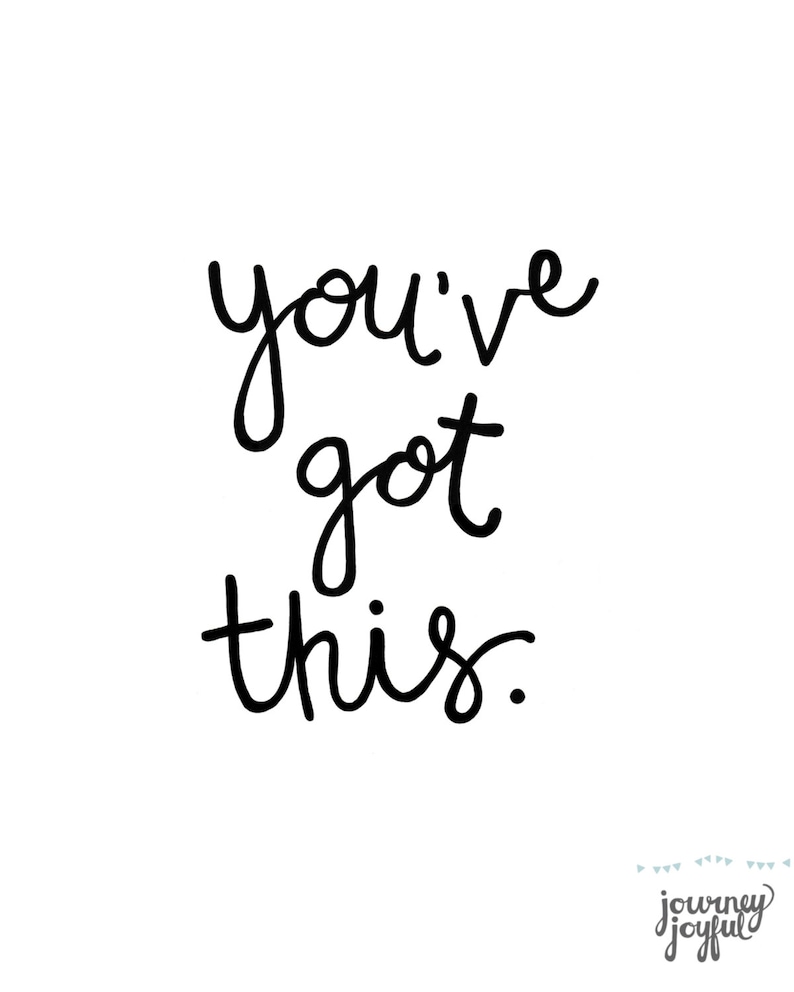
Motivational Decor You've Got This Inspirational Print Etsy
The rhetorical term for a mistaken or deliberate grammatical substitution is "enallage" — actually, "We was robbed!" (substituting the singular verb for a correct plural verb) is a great example. And aside from conveying emotion, the enallage makes the usage more memorable. Perich "You've got" seems to be the standard contraction.

You've got this digital poster inspiring quote download
2022/05/02. "You've got this" is a phrase used to encourage someone. It means you can do it, you have the skills, know-how, or ability to be successful in the given situation. Situations where you might say this is if your friend is going to a job interview, and he says he's nervous. You might remind him of how he qualifies for the job.